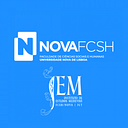4th WLC — Premise, Goals and Structure of the Workshop
Premise and Goals
Historians have long accepted that university trained jurists, both clerical and lay, were instrumental to the development of medieval government. If justice was the cornerstone and the acid test of rulership in the central Middle Ages, its administration and the increasing technicality that is intrinsic to the bureaucratisation of the latter depended on the service of individuals trained in the law, the same ones who made their first headway in the post-Gregorian Church and whom universities in Italy, southern France and elsewhere in the twelfth and thirteenth centuries increasingly turned out in the ius commune mould.
The growth of the administrative apparatus of government and the expansion of its claims of authority and control on society combined with the thickening numbers of law graduates to broaden the scope of the service that jurists provided to rulers: from their natural habitats, the court of law and the chancery, they gradually moved into less familiar milieus and roles, such as the treasury and the council, the offices of regional administration and the responsibilities of diplomatic representation. Furthermore, jurists shaped government and politics in more informal and sporadic ways, as publicists and writers of legal consultations, for example.
This evolution of the roles jurists played in government as it developed and became more complex throughout the Middle Ages is precisely the theme of this workshop. Specialists in different periods and regions of medieval Europe are invited to reflect:
/ on the nature of the service jurists provided to rulers;
/ on the connexion between that service and the transformation of politics and government in a specific period;
/ on the extent to which jurists were agents or instruments of that transformation;
/ on their social extraction, on their typical training and career structure, on the manner of their recruitment and remuneration;
/ on the relative weight of formal and informal service;
/ on the extent to which the ‘politicisation’ of government in the later Middle Ages changed the nature of the service provided by jurists;
/ on the contribution of jurists to the theorisation of government and politics, and on the relationship between their intellectual pursuits and their service to government.
Contributors are free to outline a general characterisation or to focus on one or several case-studies, but it is imperative that they reflect on, and try to engage with, the questions above that are relevant to their individual subjects. This will ensure a meaningful basis for discussion and will help to bring out more sharply, and with a modicum of analytical rigour, the stable as well as the dynamic aspects of the service of jurists to the medieval government between 1000 and 1500.
Structure of the Workshop
The workshop quality of this meeting means that work in progress and experimentation are welcome and debate is privileged. To this end, contributors will be asked to provide a substantial preliminary version or extended summary of their papers — or, ideally, the definitive version of their papers — by 24 August. These preliminary texts will then be circulated among contributors, and each contributor will be asked to prepare a developed commentary on one assigned paper.
Papers will be in English. Oral presentations at the workshop will take 20 minutes, followed by 15 minutes for comments by the designated reader and another 15 minutes for general discussion.
We think that a concentrated debate, stimulated by a shared reflection and drawing on different scholarly backgrounds and historical sensibilities, is not only a rich and rewarding experience in itself, but also a sound foundation for envisaging a coherent collective publication. Therefore, and notwithstanding the exploratory and open-ended nature of this workshop, we will encourage contributors, in due course, to expand and rework their papers in light of the ideas discussed during the workshop, with a view to their publication in a peer-reviewed thematic volume.
